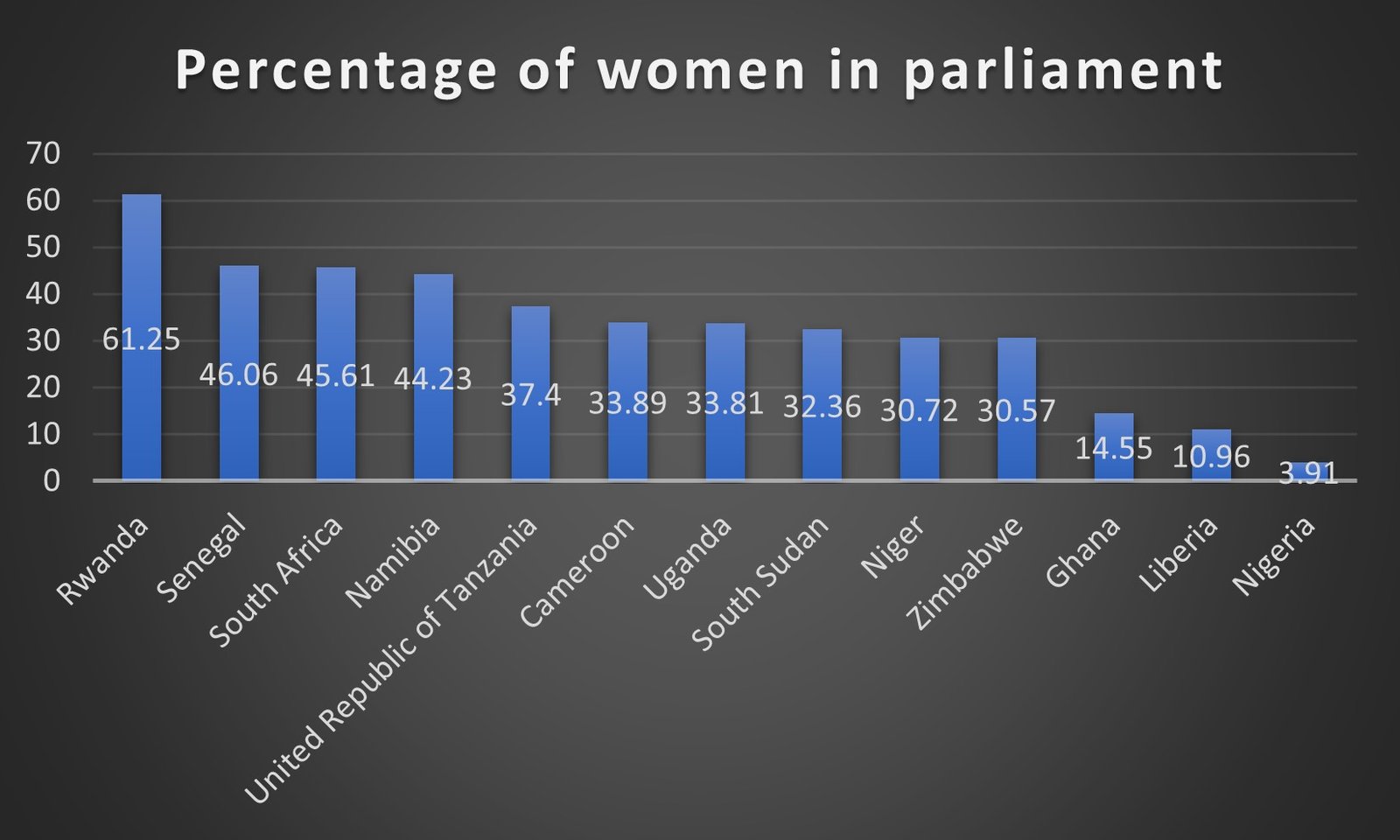Despite accounting for nearly 50 percent of Nigeria’s population, women in the country remain significantly underrepresented in leadership and governance.
Since the return of Nigeria to democracy in 1999, only 157 women have been elected into the 469-member National Assembly, compared to 2,657 men between 1999 and 2023. In fact, data from the country’s electoral umpire, Independent National Electoral Commission (INEC) shows that women got only 3.5 percent of the federal legislative seats declared following the 2023 general election. The commission noted that 1,101 candidates ran for senatorial seats, while 3,122 contested for seats in the House of Representatives.
Only nine percent of the over 4,000 candidates for legislative seats were for women, a significant decline compared to what was recorded in the 2019 general election, where women accounted for 10.4 percent of the seats.
Of the 92 women who contested for the Senate in the February 25 elections, only three won, while out of the 286 who contested for seats in the House of Representatives, only 15 have been declared winners.
The outcome of the February 25 elections has further exposed Nigeria’s failure to implement several treaties and statutes aimed at ensuring women’s involvement in politics.
Consequences of underrepresentation
The declining representation of women in politics and governance in Nigeria is a significant concern. This underrepresentation not only hinders women’s full participation and perspectives in decision-making processes but also perpetuates gender inequalities and limits the potential for inclusive and effective governance. It is crucial to address this issue to achieve gender equality and ensure women’s voices are heard in shaping policies and initiatives that affect their lives.
The consequences of this underrepresentation are far-reaching. Women’s perspectives and concerns are often overlooked, leading to policies that do not adequately address gender-based issues such as gender inequality, violence against women, and women’s economic empowerment. The absence of women in decision-making roles undermines the principles of democracy and hampers the country’s progress towards gender equality. By including more women in decision-making processes, a more comprehensive range of experiences and ideas can be considered, resulting in more effective and inclusive policies. Additionally, increasing women’s representation in leadership positions can serve as a powerful symbol of progress and inspire future generations of women to pursue their ambitions and contribute to society.

The figures from the Inter-Parliamentary Union (IPU) further show that the underrepresentation of women in Nigerian politics, which is sadly the highest in Africa, negatively impacts policy-making and societal development. Without diverse perspectives and experiences at the decision-making table, policies may not adequately address the needs and concerns of women, leading to a lack of gender-sensitive/gender-responsive legislation. This perpetuates gender inequality and hinders progress towards achieving gender equity in Nigeria. Furthermore, the absence of female voices in politics limits role models for young girls and reinforces the notion that women’s participation in public life is not valued or important. This lack of representation also hampers the development of inclusive policies that address the unique challenges faced by women, such as reproductive rights and access to healthcare. Additionally, without diverse perspectives, there is a risk of overlooking intersectional issues that affect marginalised groups within the female population, such as women with disabilities or from ethnic minority backgrounds.
Identified factors responsible
Several factors hinder women’s participation in politics and governance. One significant factor is the prevalence of gender stereotypes and biases, often leading to underestimating women’s capabilities and qualifications for leadership roles. Societal norms and stereotypes are crucial in discouraging women’s political engagement. Traditional gender roles often dictate that women should prioritise family and domestic responsibilities over pursuing a political career. This prevailing mindset perpetuates the belief that women are less capable or suited for leadership positions, creating additional barriers to their political participation. Moreover, stereotypes about women’s emotional nature or lack of assertiveness further undermine their credibility as political leaders, discouraging them from actively engaging in the political sphere. Women are mostly engaged as women leaders, market women representatives (Iya Loja) or positions that do not require active participation in governance asides campaign purposes.
Additionally, limited access to resources and opportunities, such as education and financial support, can hinder women from entering the political arena. Running for political office requires substantial financial resources, and female candidates often need more financial support and may need more funds to run competitive campaigns. For instance, the cost of purchasing forms for the major political parties for the 2023 elections was between N100 million and N2 million.
In its 2019 Assessment of Women’s Financial Inclusion report, the Central Bank of Nigeria (CBN) noted that Nigeria faced a particularly significant and growing gender gap in financial inclusion. This gender gap is more significant than in most other countries, and while financial inclusion is increasing for both men and women, the gender gap is widening. This significant gender gap in financial inclusion further exacerbates the barriers faced by women who aspire to run for the House of Representatives. The high cost of nomination forms, with a stark difference between the options available, disproportionately affects women’s ability to participate in politics and hampers their representation in the government.
Furthermore, women in politics often face harsher scrutiny and judgement than their male counterparts. Their personal lives, appearances, and choices are subject to intense public scrutiny and moral judgments, which can dissuade women from engaging in politics due to the fear of reputational damage or personal attacks, mainly because Nigerian society pressures women to conform to traditional gender roles and expectations. Women who express interest in politics may face social stigma or backlash as their aspirations are seen as deviating from societal norms. This pressure discourages women from entering the political arena or pursuing leadership positions.
Women also face skepticism regarding their political experience and qualifications, even when they possess the necessary skills and knowledge. This perception of a lack of experience reinforces the stereotype that politics is a male domain, making it more difficult for women to gain legitimacy and support as political candidates.
Nigeria is a signatory to the Convention on the Elimination of All Forms of Discrimination Against Women (CEDAW) document, thus discrimination against women in any form should no longer exist. However, despite this commitment, women still face significant barriers to political participation in Nigeria. Successful initiatives from other countries, such as Rwanda’s gender quota system, can inspire Nigeria to implement similar measures and increase women’s political representation. These initiatives have proven effective in breaking traditional gender norms and creating more inclusive political environments. Nigeria can adopt this strategy to improve the participation of women in politics and governance.
Photo source: Commonwealth Secretariat

